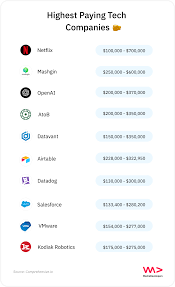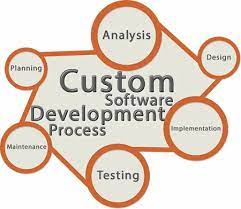Unlocking Success: The Essential Role of an IT Business Consultant
The Role of an IT Business Consultant
IT business consultants play a crucial role in helping organizations leverage technology to achieve their business goals. These professionals are experts in both information technology and business management, making them valuable assets for companies looking to optimize their operations.
Responsibilities of an IT Business Consultant
An IT business consultant is responsible for analyzing a company’s existing IT infrastructure, identifying areas for improvement, and recommending solutions that align with the organization’s objectives. They collaborate with key stakeholders to understand the company’s needs and develop strategies to enhance efficiency and productivity.
Additionally, IT business consultants provide guidance on implementing new technologies, managing software applications, and ensuring data security. They stay informed about the latest industry trends and best practices to offer cutting-edge solutions that give their clients a competitive edge.
Skills Required
To excel as an IT business consultant, individuals need a combination of technical expertise and business acumen. Key skills include:
- Strong analytical skills
- Excellent communication abilities
- Project management proficiency
- Problem-solving capabilities
- Knowledge of industry regulations and compliance standards
- Creativity in developing innovative solutions
The Benefits of Hiring an IT Business Consultant
By engaging the services of an IT business consultant, organizations can:
- Enhance operational efficiency
- Improve decision-making processes
- Increase cybersecurity measures
- Optimize resource allocation
- Leverage technology for strategic growth
In conclusion, IT business consultants play a vital role in helping businesses navigate the complexities of the digital landscape. Their expertise and insights enable companies to harness the power of technology to drive success and achieve sustainable growth.
Leveraging IT Business Consultants: 8 Key Benefits for Enhanced Efficiency and Strategic Growth
- Expertise in both IT and business management
- Ability to analyze and optimize IT infrastructure
- Recommendation of solutions aligned with business objectives
- Collaboration with stakeholders to understand needs
- Guidance on implementing new technologies
- Knowledge of industry trends and best practices
- Enhancement of operational efficiency
- Improvement of decision-making processes
6 Drawbacks of Hiring an IT Business Consultant: Costs, Conflicts, and More
- High consulting fees may be prohibitive for small businesses with limited budgets.
- Potential conflicts of interest if the consultant has partnerships with specific technology vendors.
- Difficulty in quantifying the ROI of consulting services, making it challenging to measure their impact.
- Consultants may not fully understand the unique intricacies and culture of a particular organization.
- Limited availability or responsiveness from consultants can hinder timely project completion.
- Overreliance on consultants may lead to a lack of internal expertise development within the organization.
Expertise in both IT and business management
An invaluable benefit of hiring an IT business consultant is their dual expertise in both information technology and business management. This unique skill set allows them to bridge the gap between technical solutions and strategic business objectives. By understanding the intricacies of IT systems as well as the complexities of organizational operations, IT business consultants can provide tailored recommendations that not only address technological needs but also align with the overall goals and vision of the company. Their ability to translate technical jargon into actionable insights for decision-makers makes them indispensable partners in driving innovation and efficiency within businesses.
Ability to analyze and optimize IT infrastructure
The ability of an IT business consultant to analyze and optimize IT infrastructure is a valuable asset for organizations seeking to enhance their technological capabilities. By conducting in-depth assessments of existing systems and processes, these consultants can identify inefficiencies, bottlenecks, and areas for improvement. Through strategic planning and implementation of tailored solutions, they can streamline operations, increase performance, and maximize the overall efficiency of an organization’s IT environment. This proactive approach not only ensures a more robust infrastructure but also positions the company for future growth and success in an increasingly digital world.
Recommendation of solutions aligned with business objectives
An essential benefit of hiring an IT business consultant is their ability to recommend solutions that are closely aligned with the company’s overarching business objectives. By thoroughly understanding the organization’s goals and challenges, these consultants can propose tailored IT strategies that not only address immediate technical needs but also contribute to the long-term success and growth of the business. This alignment ensures that technology investments support and enhance the company’s overall mission, vision, and strategic direction, leading to more effective utilization of resources and a competitive edge in the market.
Collaboration with stakeholders to understand needs
Collaboration with stakeholders to understand their needs is a key advantage of hiring an IT business consultant. By working closely with various departments and individuals within an organization, the consultant gains valuable insights into the specific challenges and requirements of the business. This collaborative approach ensures that solutions are tailored to meet the unique goals and objectives of the company, leading to more effective and targeted IT strategies. Effective communication and engagement with stakeholders allow the consultant to align technological recommendations with the overall vision of the organization, ultimately driving successful outcomes and fostering a culture of teamwork and shared responsibility.
Guidance on implementing new technologies
IT business consultants provide invaluable guidance on implementing new technologies within organizations. By staying abreast of the latest advancements in the tech industry, they can recommend and oversee the integration of cutting-edge solutions that align with a company’s objectives. This proactive approach not only ensures a smooth transition to new systems but also maximizes the benefits that innovative technologies can bring, ultimately helping businesses stay competitive and agile in a rapidly evolving digital landscape.
Knowledge of industry trends and best practices
Having a deep understanding of industry trends and best practices is a significant advantage of hiring an IT business consultant. This expertise allows consultants to provide clients with cutting-edge solutions that are aligned with the latest developments in technology and business strategies. By staying informed about emerging trends, IT business consultants can offer innovative recommendations that help organizations stay competitive and ahead of the curve in a rapidly evolving digital landscape.
Enhancement of operational efficiency
The expertise of an IT business consultant in enhancing operational efficiency is invaluable to organizations seeking to streamline their processes and maximize productivity. By analyzing existing workflows, identifying bottlenecks, and recommending optimized solutions, IT consultants can help businesses operate more smoothly and effectively. Through the implementation of efficient technologies and strategic improvements, they enable companies to achieve higher levels of performance, reduce costs, and deliver better results in a competitive business environment.
Improvement of decision-making processes
One significant benefit of engaging an IT business consultant is the improvement of decision-making processes within an organization. By leveraging their expertise in technology and business management, IT consultants can provide valuable insights and data-driven recommendations that empower companies to make informed decisions. Through strategic analysis and innovative solutions, IT consultants help streamline decision-making processes, leading to more efficient operations, increased productivity, and ultimately, better outcomes for the business as a whole.
High consulting fees may be prohibitive for small businesses with limited budgets.
High consulting fees associated with IT business consultants can pose a significant challenge for small businesses operating on limited budgets. The cost of hiring these professionals may be prohibitive for smaller organizations, making it difficult for them to access the expertise and guidance needed to optimize their IT infrastructure. This financial barrier can prevent small businesses from benefiting from the valuable insights and strategic recommendations that IT consultants offer, potentially hindering their ability to compete effectively in the digital marketplace. Finding affordable solutions or alternative consulting arrangements may be crucial for small businesses looking to overcome this con and leverage technology effectively within their budget constraints.
Potential conflicts of interest if the consultant has partnerships with specific technology vendors.
One significant con of hiring an IT business consultant is the potential for conflicts of interest, especially when the consultant has established partnerships with specific technology vendors. In such cases, there is a risk that the consultant may prioritize recommending solutions from their partner vendors over objectively selecting the best-fit technologies for the client’s needs. This bias can compromise the integrity of the consulting process and hinder the client’s ability to explore a wider range of options that could better suit their requirements and budget. Transparency and clear communication regarding any vendor relationships are essential to mitigate this conflict and ensure that recommendations are made in the client’s best interests.
Difficulty in quantifying the ROI of consulting services, making it challenging to measure their impact.
One significant drawback of IT business consultants is the difficulty in quantifying the return on investment (ROI) of their consulting services. This challenge makes it arduous for organizations to accurately measure the impact that consultants have on their operations and bottom line. Without clear metrics to assess the effectiveness of consulting initiatives, companies may struggle to justify the costs associated with hiring IT business consultants and may find it challenging to determine the true value they bring to the organization.
Consultants may not fully understand the unique intricacies and culture of a particular organization.
Consultants may encounter challenges when they do not fully grasp the unique intricacies and culture of a specific organization. Without a deep understanding of the company’s internal dynamics, values, and operational nuances, consultants may struggle to tailor their recommendations effectively. This lack of insight can lead to proposed solutions that are not aligned with the organization’s goals or that fail to resonate with its employees. Building trust and rapport within the organization becomes more difficult when consultants are perceived as disconnected from the company’s core identity and way of doing business. It is essential for IT business consultants to invest time in comprehensively understanding each client’s organizational culture to deliver solutions that truly meet their needs.
Limited availability or responsiveness from consultants can hinder timely project completion.
Limited availability or responsiveness from IT business consultants can pose a significant challenge and hinder timely project completion. When consultants are not readily accessible to address issues, provide guidance, or make critical decisions, it can lead to delays in project milestones and overall progress. This lack of responsiveness can disrupt communication flow, cause misunderstandings, and create bottlenecks in the project timeline. Clients rely on prompt and efficient support from consultants to ensure that projects stay on track and meet deadlines. Therefore, ensuring consistent availability and responsiveness is essential for successful project outcomes in the realm of IT business consulting.
Overreliance on consultants may lead to a lack of internal expertise development within the organization.
Overreliance on IT business consultants can potentially result in a lack of internal expertise development within the organization. When companies consistently turn to external consultants for IT solutions, there is a risk that internal staff may not have the opportunity to acquire and enhance their own skills. This dependency on external expertise could hinder the growth and knowledge-building of the organization’s workforce, limiting their ability to independently address future IT challenges. It is essential for businesses to strike a balance between utilizing external consultants and investing in the continuous development of their internal talent to ensure long-term sustainability and innovation within the company.









